Vacation Home Insurance Quotes
Vacation homes should be all about fun, but unfortunately, they’re not always fun to insure! As you may discover, some insurance carriers do not want to provide coverage for unoccupied houses or rental properties. However, if you need to insure your vacation home, you’ve come to the right place. As you know, the Carolinas are a vacation destination, so it’s no surprise that many of our clients have vacation homes, second homes, and vacation rental properties. Over the years, we’ve partnered with nationally recognized companies, and can provide vacation home insurance protection at a competitive rates.
Get a Quote Today
We offer:
- Vacation home insurance
- Insurance for rental property
- Vacant home insurance
- Unoccupied house insurance
- Landlord buildings insurance
- Landlord property insurance
- Landlord liability insurance
- Second home insurance
Our Lowcountry Insurance Associates can work with you to help you understand underwriting criteria and take necessary steps to attain the most desirable vacation home insurance rates. For example, if your vacation home is located in a coastal region, you may be able to significantly reduce your vacation home insurance premium with hurricane-mitigation steps, such as installing wind-resistant garage doors and roofing or impact-resistant glass windows.
Generally speaking, rates for unoccupied homes are higher than for those occupied year-round, simply because the risk of theft or catastrophic fire is higher during periods of vacancy. However, if your vacation home is vacant or unoccupied at certain times during the year, you may save money on your vacation home insurance premium by installing an alarm system, a fire alarm, or a water leak detection and shut off alarm. Also, make sure to follow a few precautions to minimize your chance of having a theft or vandalism claim at your vacation home property:
- Use effective, functional window latches and locks.
- Install light timers.
- Replace fire and carbon dioxide alarm batteries.
- Ask someone who lives nearby to check on the house at least once a week.
- Hire a weekly lawn maintenance service.
- Turn off the pilot light for any gas fireplaces.
- Unplug all portable heaters and appliances.
If you’re purchasing a second home, remember that vacation home insurance rates are more affordable for newer homes that comply with the latest building codes and for homes located in low-crime neighborhoods. Some insurers offer better rates to vacation homes located in gated communities. Also, if you’re purchasing a second home in a low-lying area, you may need a separate flood insurance policy.
If you’re renting your vacation house, you may have additional liability and property exposures. The liability insurance from your primary home policy may not extend to protect your vacation home. Tell your agent about what types of activities might take place at your rental property, so he or she can recommend the best protection. It’s a good idea to include a waiver of liability in your rental agreement. You should also adopt a proactive system of managing keys and/or access codes. Also, ask about landlord liability insurance and landlord property insurance for an added measure of protection.
Get in touch with us about Second Home Insurance
Do You Need Landlord Property And Liability Insurance?
If you have rental property, landlord property and landlord liability insurance should be considered. They can protect you if and when a dispute arises between you and your tenants. In some cases, the policy pays for any legal expenses incurred to resolve a dispute.
If a tenant extensively damages your rental property, landlord property insurance can pay to restore it, and may cover your loss of rental income during the restoration period.
As with your primary home, maintain an accurate inventory of your vacation home’s belongings and update the inventory every six months. Keep photos, receipts, serial numbers, and model numbers whenever possible. If you store recreational toys at your vacation home, such as boats, kayaks, jet skis, or ATVs, ask your agent if they’re covered by your vacation home policy or if a separate policy is needed. Also, ask your agent about how you can mitigate the liability involved with allowing renters to use these items.
An additional risk to consider is how you protect your personal data if you make a computer available to renters. Make sure to set up a separate “guest” login, apply a password to your Wi-Fi connection, and install anti-virus software.
Whatever your vacation home or second home insurance need, Lowcountry Insurance can help! As a Trusted Choice® independent agency, we have relationships with many of the nation’s leading vacation home insurance carriers, so you can count on us to give you an objective assessment of your vacation home risks, insurance options, and rates.
Lowcountry Insurance offers vacation home insurance for all of the Carolinas. Call our office for a free vacation home insurance quote today.
Contact Us

